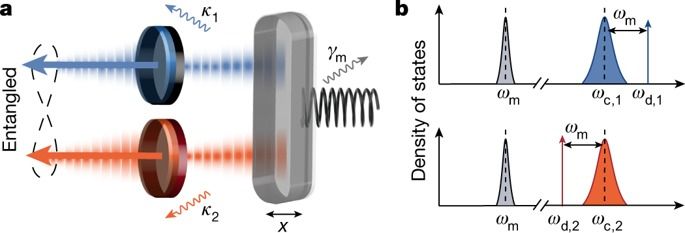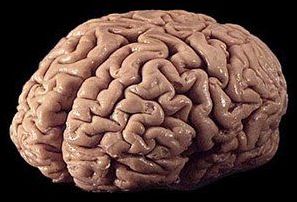
Mechanical systems facilitate the development of a hybrid quantum technology comprising electrical, optical, atomic and acoustic degrees of freedom, and entanglement is essential to realize quantum-enabled devices. Continuous-variable entangled fields—known as Einstein–Podolsky–Rosen (EPR) states—are spatially separated two-mode squeezed states that can be used for quantum teleportation and quantum communication. In the optical domain, EPR states are typically generated using nondegenerate optical amplifiers, and at microwave frequencies Josephson circuits can serve as a nonlinear medium4,5,6. An outstanding goal is to deterministically generate and distribute entangled states with a mechanical oscillator, which requires a carefully arranged balance between excitation, cooling and dissipation in an ultralow noise environment. Here we observe stationary emission of path-entangled microwave radiation from a parametrically driven 30-micrometre-long silicon nanostring oscillator, squeezing the joint field operators of two thermal modes by 3.40 decibels below the vacuum level. The motion of this micromechanical system correlates up to 50 photons per second per hertz, giving rise to a quantum discord that is robust with respect to microwave noise. Such generalized quantum correlations of separable states are important for quantum-enhanced detection and provide direct evidence of the non-classical nature of the mechanical oscillator without directly measuring its state. This noninvasive measurement scheme allows to infer information about otherwise inaccessible objects, with potential implications for sensing, open-system dynamics and fundamental tests of quantum gravity. In the future, similar on-chip devices could be used to entangle subsystems on very different energy scales, such as microwave and optical photons.

















